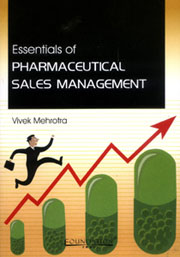Book contents
- Frontmatter
- Contents
- Acknowledgements
- Introduction
- 1 Role
- 2 Performance Management
- 3 Territory and Market Knowledge
- 4 Joint Fieldwork
- 5 On-the-job Training
- 6 Managing Key Customers
- 7 Development of Weak or Underdeveloped Territories
- 8 Performance Counselling
- 9 Management of Vacant Territories
- 10 Induction of a New Medical Representative
- 11 Organising and Conducting Successful Meetings
- 12 Monitoring
- 13 Performance Appraisal
- 14 Managing People Productively
- 15 Interface with Marketing
- Postscript
- Appendices
14 - Managing People Productively
Published online by Cambridge University Press: 26 October 2011
- Frontmatter
- Contents
- Acknowledgements
- Introduction
- 1 Role
- 2 Performance Management
- 3 Territory and Market Knowledge
- 4 Joint Fieldwork
- 5 On-the-job Training
- 6 Managing Key Customers
- 7 Development of Weak or Underdeveloped Territories
- 8 Performance Counselling
- 9 Management of Vacant Territories
- 10 Induction of a New Medical Representative
- 11 Organising and Conducting Successful Meetings
- 12 Monitoring
- 13 Performance Appraisal
- 14 Managing People Productively
- 15 Interface with Marketing
- Postscript
- Appendices
Summary
While writing my book, Why My Horse Doesn't Drink, I interviewed a number of managers and their team members. The objective was to find out the reasons why these people were dissatisfied, ultimately resulting in their leaving the organisations. One of the reasons given by most of the respondents was that if the role they are playing in the organisation no longer offers them any challenges or excitement, it leaves them dissatisfied. Another common reason given was the behaviour and incompetence of their immediate superiors.
The root cause for both the problems is one, that is, the manager's insensitivity towards their team members. This makes people feel that someone is using them rather than helping them develop. This also gives rise to a feeling in them of being manipulated and undervalued. Consequently it brings down their productivity.
Here is a strategy to utilise your team members' productively.
Getting Along
The first and foremost prerequisite to keep a person productive is to get along with him. More often than not, people do not get along because they do not agree on certain issues that may or may not be related to the job. Getting along does not mean always agreeing to what the other person feels or expects from you. Getting along is to value each other's opinions. Therefore, it will be appropriate for you to find out as to what might irritate your team member. At the same time, express explicitly to them what might annoy you.
- Type
- Chapter
- Information
- Essentials of Pharmaceutical Sales Management , pp. 177 - 190Publisher: Foundation BooksPrint publication year: 2007



